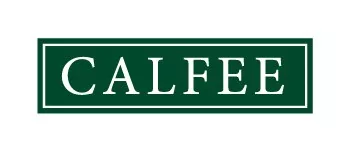- in United States
- within Environment, Food, Drugs, Healthcare and Life Sciences topic(s)
- with readers working within the Environment & Waste Management and Utilities industries
On July 4, 2025, the "One Big Beautiful Bill Act" (OBBBA) was signed into law. Among its sweeping changes to tax and spending policies, there were a few significant changes impacting employee benefit programs, including health savings accounts (HSAs), education loan assistance, certain controlled group aggregation rules impacting executive compensation for public companies, and limits for dependent care assistance programs (DCAPs).
HSAs
Employees must be covered by a high-deductible health plan (HDHP) to be eligible to contribute to an HSA. HDHPs generally do not cover medical expenses until the deductible is met. In the past this meant that employers had to require participants to pay market value for telehealth coverage prior to a participant meeting the HDHP deductible or such coverage would cause the participant to become ineligible to contribute to the HSA. During the COVID-19 crisis, HDHPs were temporarily permitted to offer first dollar telehealth coverage and, although this accommodation was extended multiple times, it expired for plan years beginning after January 1, 2025. OBBBA made permanent this telehealth relief for HDHPs/HSAs retroactively for plan years beginning on and after January 1, 2025.
OBBBA also provides favorable HSA treatment for coverage under a Direct Primary Care (DPC) Arrangement. OBBBA defines a DPC Arrangement as an arrangement under which an individual is provided medical care consisting solely of primary care services provided by primary care practitioners and the only compensation for such care is a fixed period fee (provided the fee is not more than $150 per month for individual care and $300 per month for family care). OBBBA clarifies that a DPC Arrangement is not medical insurance and, as such, effective on and after January 1, 2026, coverage under a DPC Arrangement would not preclude otherwise HSA-eligible-individuals from making or receiving HSA contributions. In addition, fees paid for a DPC Arrangement are qualified medical expenses that can be paid or reimbursed from an HSA.
Education Loan Assistance
Through a qualified education assistance program, employers may provide up to $5,250 per year (tax-free) to employees for education expenses, including tuition, fees, books and supplies. During the COVID-19 crisis, employers were also permitted to pay for or reimburse an employee's qualified student loans. OBBBA makes permanent this loan assistance provision for qualified education assistance programs. In addition, the $5,250 annual dollar limit on qualified education assistance programs will be adjusted for inflation annually starting in 2026.
Executive Compensation – Controlled Group Aggregation
Currently, public companies cannot deduct compensation paid to certain executives in excess of $1 million annually. OBBBA provides a new controlled group aggregation rule, effective for tax years beginning after December 31, 2025, for determining total compensation paid to specified covered employees and for designating the five top-paid employees in a particular year. Under the new rule, compensation from all entities within a controlled group is aggregated to see if the $1 million annual deduction limit is reached. If the limit is exceeded, the allowable deduction is allocated pro rata among the controlled group members that paid the compensation.
DCAPs
The annual limit for a dependent care assistance program flexible spending account is currently $5,000 ($2,500 for married couples filing separately). Effective for tax years beginning after December 31, 2025, OBBBA increases the annual limit to $7,500 ($3,750 for married couples filing separately).
Recommended Actions for Plan Sponsors
With respect to the change for HDHPs/HSAs, plan sponsors should consider whether offering first dollar coverage for telehealth coverage or a DPC Arrangement meets their organization's employee benefits strategies.
Plan sponsors that want to offer loan assistance through their qualified education assistance plan will need to amend their plan to take advantage of this provision.
In order to raise applicable annual limits to DCAP flexible spending accounts, plan sponsors should consult with their third party administrators and legal counsel to update plan documents and employee communications. Plan sponsors may always want to evaluate how the increased limit may impact nondiscrimination testing.
Finally, public companies should consult with their legal counsel regarding the new controlled group aggregation rule.
The content of this article is intended to provide a general guide to the subject matter. Specialist advice should be sought about your specific circumstances.




